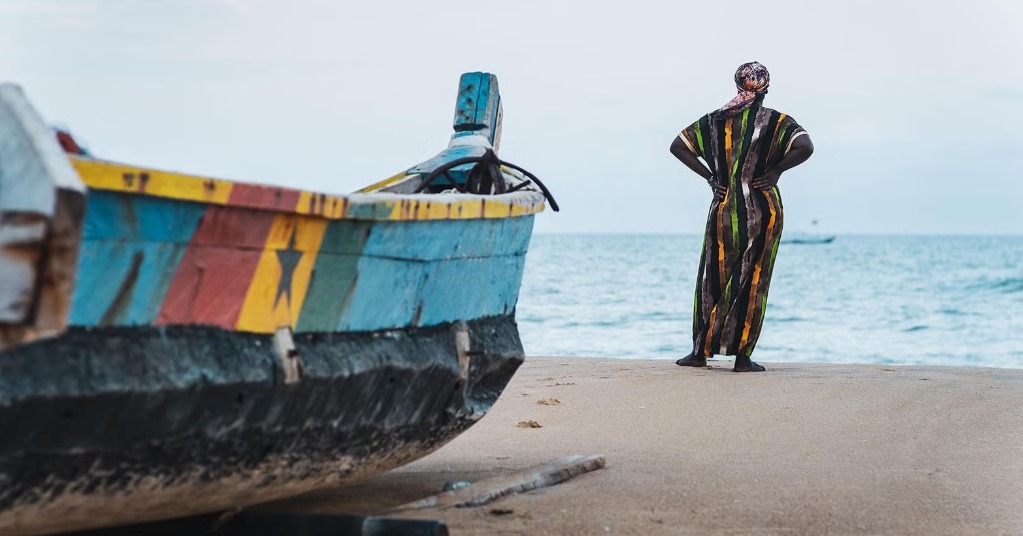An assessment of the World Bank’s support for the blue economy offers insights into more holistic and integrated approaches that protect ocean health while promoting the sustainable use of this vital resource for economic growth, livelihood improvement, and job creation.
Imagine a world where coastal communities thrive, supported by sustainable fishing practices, eco-tourism initiatives, and innovative technologies. Picture dynamic marine ecosystems teeming with life, where pollution is a thing of the past. This is not just a dream; it’s the potential of the blue economy.
The health of the oceans is intrinsically linked to human health. Oceanic and coastal resources ensure food security, livelihoods, inclusive prosperity, and our ability to address critical challenges such as climate change and biodiversity loss. Yet, despite their vital role, overexploitation, rising levels of marine pollution, including plastic waste, and competition for space to allow for growth continue to push ecosystems toward irreversible and catastrophic tipping points.
There is a growing call to rethink how we use our oceans and to determine whether current governance and regulatory frameworks are fit for purpose. A new report from the Independent Evaluation Group (IEG) assesses a decade of World Bank support for the blue economy. The findings from the report, Making Waves: World Bank Support for the Blue Economy, 2012-2023, offer pathways for more integrated approaches where economic prosperity and ocean health go hand in hand.
Why It Matters for Everyone
Protecting the ocean is a universal concern. Oceans are the lifeblood of life, and ocean health affects us all. More holistic, collaborative, and environmentally focused approaches to ocean management can promote:
- A Healthier Planet: By adopting a restorative approach, we can fight pollution, protect biodiversity, and ensure our oceans continue to thrive for future generations.
- Stronger Communities: A truly inclusive blue economy empowers coastal communities by creating sustainable livelihoods and promoting social equity.
- A More Resilient Future: By recognizing the links between the blue economy and other global challenges, we can create economies that are more resilient to climate change and other crises.
- Better Decision-Making: With the right approaches, we can collect the data needed to assess progress, manage trade-offs, and maximize economic potential while ensuring ocean health.
Making Waves
The World Bank has played a key role in bringing the evolving concept of the blue economy to the global stage. The report highlights progress toward a blue economy, acknowledges the challenges ahead, and offers recommendations for a clear path forward. To guide the approach to the blue economy and maximize its impact, the report presents three key recommendations based on evidence of what works and necessary adjustments.
Recommendation 1: Clear and Convincing Articulation
An essential step in promoting a blue economy approach is a common understanding of what it means. A shared understanding of the holistic goal of the blue economy would encompass the restorative power of our oceans, social inclusion and equity, and integrated approaches. At its core, the concept involves the interconnectedness of our environmental, social, and economic goals. A clear and convincing articulation of the blue economy approach would combine a focus on sustainable livelihoods with leaving no one behind, and addressing the challenges of food security, climate change, biodiversity loss, and the need for a circular economy.
Recommendation 2: Proactive and Holistic Action
It is necessary to shift from fragmented and sectoral activities to a more integrated and holistic approach. This means blue economy approaches are a key part of World Bank country strategies and consistent across all related projects. It is important for projects to be designed with a progressive blue economy orientation, and participatory planning should be an integral part of the process.
Recommendation 3: Strong Partnerships for Real Change
No single entity can realize the transformative potential of the blue economy alone. Strengthening collaborations with partner organizations and coastal communities will be essential. Working together to bridge policy and institutional gaps will be even more crucial as we embrace new industries and technologies in the blue space.
Making Waves Together
The report aims to contribute to global discussions aimed at redefining our relationship with the oceans and shifting from ocean exploitation to stewardship. This transition will require collaboration around a shared understanding of objectives between governments, the private sector, and local communities. It is especially important that local communities are actively involved in decision-making and benefit from sustainable development.
Shifting to ocean management will also require innovation. New technologies and practices are needed to promote both economic growth and ocean health.
The IEG will join ocean and resource management leaders from around the world at their 12th Annual World Ocean Summit. Starting Wednesday, March 12, the summit will bring together change-makers from government agencies, the United Nations, financial institutions, the private sector, and many other partners and stakeholders. The IEG will present evidence on the World Bank’s experience in promoting blue economy principles and will host a workshop to share innovative approaches aimed at realizing the potential of the blue economy. Be sure to find us if you attend the conference in Tokyo on March 12 and 13.



